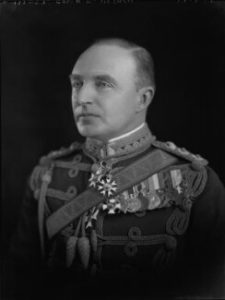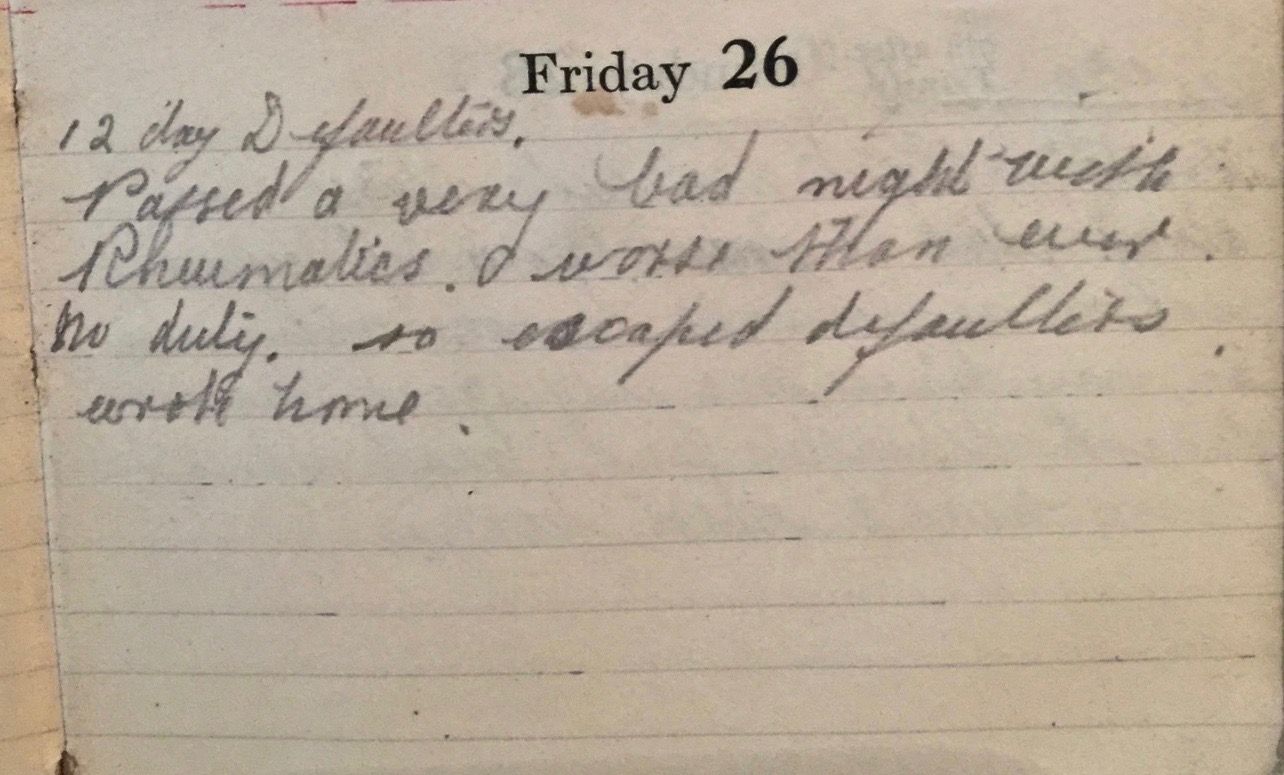Friday July 26th, 1918
Twelfth day defaulters. Passed a very bad night with rheumatics. Worse that ever. No duty, so escaped defaulters. Wrote home.
Major-General Bethell (1882-1947)

Hugh Keppel Bethell was promoted to command the 66th Division at the end of March 1918. This was just after its harrowing and costly retreat in the first days of Germany’s Spring Offensive. At 35 years old, he was the youngest British Divisional Commander of the 20th century, albeit the Division was ‘a ramshackle, composite one’.¹
Bethell was born into a military family in 1882. Educated at Charterhouse and Woolwich, he was gazetted into the Royal Garrison Artillery in 1902 and later transferred to the 7th Hussars. Nicknamed ‘The Beetle’, he became Commander of the 1st Battalion Northamptonshire Regiment on the Western Front in late 1915 and a year later was given command of the 74th Brigade.
In September 1917, as Capt & Bt Lt-Col (Temp Brig-Gen), Bethell was awarded the DSO. His citation read: ‘For conspicuous gallantry and devotion to duty whilst commanding an attack upon a hostile position. It was a very hard fight, and it was due to his fine leadership that the attack was a complete success. By his energy and personal example he very greatly inspired all ranks of his brigade.’²
Lord Moyne’s Diary
Bethell featured heavily in the war-time diary of one of his officers, Walter Guinness MP, later Lord Moyne.
In the introduction to Guinness’s diary, Brian Bond, its editor, wrote. ‘[Bethell] was distinguished, or notorious, for flouting regulations and higher authorities, ‘poaching’ officers and equipment from other units and driving his staff to distraction by a flood of contradictory or impossible orders. Guinness’s first description of him was ‘like quicksilver’.’ Another description, later in the diary, described his temper: ‘Vesuvius in eruption couldn’t compete with Bethell’.’¹
All commentators though seemed to agree that he was an outstanding commander in battle. ‘Guinness’s diary entries for 21 March 1918, and succeeding days testify to Bethel’s admirable handling of the 74th Brigade during the retreat and counter-attack.’¹
Early Days with the 66th
By the time Bethell became its commander, the 66th had retreated to Amiens and was a fraction of its previous strength. Apparently Bethell decided that the 66th could fight on as a machine-gun division and sent his senior staff officer to ‘purloin’ machine-guns.
Bear in mind that this was in the heat of the retreat and counter-offensive during Operation Michael. On the one hand it is easy to admire Bethell’s fighting spirit. On the other, to compromise other units at such a time, was at the very least arrogant and probably reckless.
This was certainly the reaction of Douglas Haig who, when presented with Bethell’s machine-gun division, instead sent it to train the American draft.
Redemption
From July 1918, under Bethell’s command, the Division would be rebuilt to its former strength. Battalions were drawn from all over, including the 13th Manchester. The 66th will go on to play an important role on the road to victory.
‘”Bethell’s Force,” consisting of his division, two squadrons of the RAF, a brigade of cavalry, and other attached units, did valuable work in the last days of the war operating as the advance guard of the Fourth Army and he was mentioned in despatches eight times.’³
Showered with honours from home and abroad after the war, including a knighthood, Major-General Sir Hugh Keppel Bethell KBE, CB, CMG, CVO, DSO would never have another opportunity to command in battle.
He will hold the prestigious post of Military Attache to Washington until 1923. His rank will become substantive in 1930 when he is appointed military commander of the Presidency and Assam District in India. From there he will retire from the Army in 1934 and will die in Kenya in 1947. His medals will be auctioned in 2010 and realize just over £3,300.º
13th (Service) Battalion War Diary – 26th July 1918 – Haudricourt, France
Training and working party as before except only 30 men on rifle range.
References & Further Reading
¹ ‘Staff Officer: The Diaries of Lord Moyne 1914-1918’ by Brian Bond, publisher Casemate, pages 16 & 17
² ‘The London Gazette’, Sept 25th, 1917, Supplement 30308, p 9968 & January 8th, 1918, supplement 30466, p560
³ Major-General Sir Hugh Keppel Bethell’s obituary in The Times, March 10th, 1947, page 7
º Warwick & Warwick Auctioneers
* Photograph by Lafayette. Copyright the National Portrait Gallery, used under Creative Commons License



2 thoughts on “Major-General Bethell – July 26th, 1918”
Comments are closed.